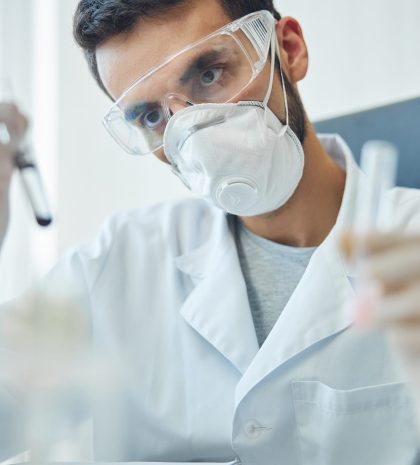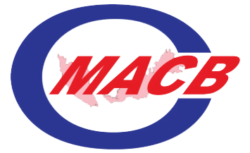History
History of MACB
Prior to the 1970s, most hospital laboratories in Malaysia were run by the few pathologists that the country had at that time. Technologists, who were then known as laboratory assistants, ran indeed many laboratories. It was only in the 1970s that scientifically qualified graduates were recruited as clinical biochemists in Malaysian government hospitals.
Both the government and private sector provide health services in Malaysia. The network of hospitals and community clinics operated by the Ministry of Health offers health care to all Malaysians at minimal or no charge at all. Operating in parallel are the services offered by private hospitals and clinics where users are charged the full cost of care and treatment.
Government laboratories that perform testing services for government hospital patients are attached to government hospitals, with the exception of the 105-year-old Institute for Medical Research in Kuala Lumpur, a department of the Ministry of Health, which offers specialized testing services and undertakes research on local health problems. All the major government hospital laboratories are staffed by trained pathologists including medically-qualified chemical pathologists and degree-holding scientific officers who are attached to the biochemistry and microbiology sections of the laboratories according to their specialties. A college of Medical Laboratory Technology in Kuala Lumpur trains diploma-level MLTs to cater to the needs of the Ministry of Health’s laboratories.
Private laboratories are of two kinds: those which are attached to private hospitals and stand-alone laboratories which cater mostly to outpatient private clinics. Most, if not all, have pathologists in charge.
Accreditation of laboratories is still at in its infancy and the ISO15189 is the accreditation recommended by the Department of Standards. Some laboratories have received accreditation from NATA (Australia).
The Malaysian Association of Clinical Biochemists was formed, when a group of like-minded clinical biochemists got together to elect a pro-tem committee on 18th August 1990. The idea of forming an association of clinical biochemists was first put forward by Dr. Tan It Koon and Dr. Mohd Zaini in 1979. It was only in 1987 that serious discussions involving 21 biochemists and 1 chemical pathologist.
It came into official existence shortly afterward upon receiving its formal reregistration. The first scientific meeting of the MACB was held on 9 March 1991 and one has been held annually ever since.
Membership in the Asian and Pacific Federation of Clinical Biochemistry (APFCB) and the IFCC soon followed. A coup of sorts was achieved when the young MACB was awarded the opportunity to host the 8th Asian-Pacific Congress of Clinical Biochemistry (8th APCCB) by the APFCB that was to be held in October 1998.
Much effort went into the organization of this event by a small core group of inexperienced but enthusiastic members, that included this writer, who began work in 1995. The in vitro diagnostics industry was immensely supportive of funding. However, 2 major events beyond our control intervened that threatened to disrupt our plans and hard work. The first of these was the currency crisis of 1997 which saw the devaluation of the currencies of most of the Asian countries in the Pacific rim and put much pressure on our corporate supporters.
The next was a local political event that caused some minor demonstrations but whose importance was hyped when it was televised to the rest of the world. This caused prospective participants to draw the wrong conclusions. Fortunately, our corporate partners were steadfast in their support during the currency crisis and the assurances on the security situation from the organizers did not result in mass cancellations of participants and speakers. The 8th APCCB in Malaysia was both a scientific and financial success.
Besides its annual meetings, the MACB undertakes training programmes on an ad hoc basis. In recent years, it has also hosted APFCB Travelling Lecturers in 1999, 2000 and 2003. In 2004, the MACB hosted its first IFCC Visiting Lectures given by Professor Jean-Claude Forest of Laval University Quebec, Canada, who visited the country as part of a tour arranged by the APFCB.
A training programme on laboratory quality will be organised in Kuala Lumpur jointly with the Australasian Association of Clinical Biochemists in the middle of this year (2006) in conjunction with the MACB’s annual scientific meeting.
Contributed by Joseph Lopez, Executive Board member, IFCC
(The writer is a founder member of the MACB)

Our Objective
The main objective of the MACB is to disseminate scientific knowledge and promote good technical and clinical practice in the field of clinical diagnostics.
MACB provides members with the latest information on new discoveries, and current and future practices in clinical diagnostics. In addition, the association is also a platform for members to exchange knowledge and ideas as well as network with experts in the scientific community, both locally and abroad. The association awards a Travel Grant to deserving members to assist them in presenting papers and posters at scientific conferences or attending training abroad.
The MACB Annual Conference (previously called the MACB Annual Scientific Meeting) is an event that is usually held in conjunction with the General Meeting. This event began in 1992 and has been organised every year since then. This event is of international standard with plenary lectures, symposiums, free papers, poster presentations and trade exhibition. Speakers are local as well as international experts in the field. The participation to the MACB conferences is open to members and non-members.
The association also bids to host international conferences and in 1998 successfully organized the Asian Pacific Congress in Clinical Biochemistry in Kuala Lumpur. Other conferences include co-hosting the American Association of Clinical Chemistry (AACC) Lab Automation Conference in 2009 and the International Federation of Clinical Chemistry and Laboratory Medicine (IFCC) General Conference in November 2012. For the first time in 2013, the association is also organizing the MACB Regional Conference in Kuala Lumpur.
The MACB publishes its own refereed scientific journal called the “Malaysian Journal of Clinical Biochemistry”.
The MACB hosts one or two day seminars/workshops under the topics of Quality, Laboratory Safety, Laboratory management and Clinical updates.
In 2013 the association co-hosted with IFCC a 6-day workshop on “Basic Molecular Diagnostics”: This course was conducted by experts from six countries and is expected to benefit many sectors both in the service and research areas.
The president is an affiliate member of the IFCC and APFCB and attends the annual meetings as a representative of Malaysia under the national society.
The association has working groups comprising of experts who work on preparing guidelines for good clinical diagnostic practice. MACB published its first guideline on HBA1c reporting in 2012 and will continue its efforts in future.
MACB provides links to suitable e-learning websites and issues a certificate upon completion.
The association collaborates with other NGOs to provide services in Health Screening Programs to under privileged communities.
- Introduce the MACB newsletter.
- Provide professional exams and skills training programs to practitioners.
- Provide financial assistance/scholarship to school children.
